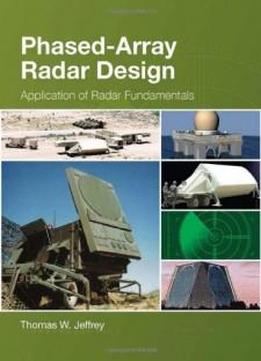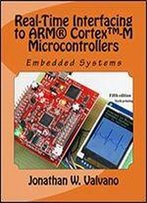
Phased-array Radar Design: Application Of Radar Fundamentals
by Tom Jeffrey /
2009 / English / PDF
4.6 MB Download
Phased-Array Radar Design is a text-reference designed for
electrical engineering graduate students in colleges and
universities as well as for corporate in-house training programs
for radar design engineers, especially systems engineers and
analysts who would like to gain hands-on, practical knowledge and
skills in radar design fundamentals, advanced radar concepts,
trade-offs for radar design and radar performance analysis. This
book is a concise yet complete treatment of the relationship
between mission-level requirements and specific hardware and
software requirements and capabilities. Although focusing on
surface-based radars, the material is general enough to serve as a
useful addition to books currently available for this purpose. It
covers all phases of design and development, including the
development of initial concepts and overall system requirements,
system architecture, hardware and software subsystem requirements,
detailed algorithms and system integration and test. This book
provides a wealth of information rarely covered in one book. It is
unique in that it provides a hands on and how to perspective on
applying radar theory to design and analysis. Rather than being a
theory and derivations-type, this book is applications-oriented
making it different from other published works on this subject.
Phased-Array Radar Design is a text-reference designed for
electrical engineering graduate students in colleges and
universities as well as for corporate in-house training programs
for radar design engineers, especially systems engineers and
analysts who would like to gain hands-on, practical knowledge and
skills in radar design fundamentals, advanced radar concepts,
trade-offs for radar design and radar performance analysis. This
book is a concise yet complete treatment of the relationship
between mission-level requirements and specific hardware and
software requirements and capabilities. Although focusing on
surface-based radars, the material is general enough to serve as a
useful addition to books currently available for this purpose. It
covers all phases of design and development, including the
development of initial concepts and overall system requirements,
system architecture, hardware and software subsystem requirements,
detailed algorithms and system integration and test. This book
provides a wealth of information rarely covered in one book. It is
unique in that it provides a hands on and how to perspective on
applying radar theory to design and analysis. Rather than being a
theory and derivations-type, this book is applications-oriented
making it different from other published works on this subject.











